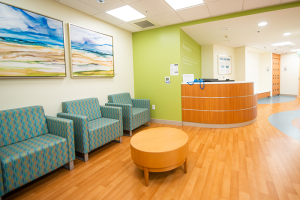Operational improvements lead way toward renovation project
Kingston (Ontario) General Hospital was preparing to update aging facility infrastructure and wanted to make the most of the opportunity. Staff members were already hardworking and quality-focused, and didn’t realize how much untapped potential was waiting under the surface.
In less than six months, they fundamentally redesigned how they managed instrument flow from the operating room (OR), through decontamination and back to the OR. They were able to reduce the average turnaround time for an instrument set by 54 percent, with nearly all instruments now processed in less time than their previous “stat” goal. This was all before the big renovation, which was still a few years away. Reductions in turnaround time mean that fewer instruments are needed and less space is required at each step along the way.
Also in this article |
| Efficient materials management design |
|
|
Ten years after the initial project, this department has continued to drive improvement. The full renovation made the environment nicer, but the work processes and improvements in the department culture led the way. Derek Wallis, central processing department manager, says, “We are better at improving now than ever before. There is always more to do.”
The results are staggering. Besides using 600 square feet less space than originally planned, they have been able to absorb ongoing increases in demand without additional space or staff. The department now has a budget that is half that of comparable departments at other institutions, and quality and service levels that are 90 percent better than industry benchmarks, all while maintaining one of the lowest levels of sick leave in the hospital (65 percent below the department's goal) because of how critical the staff see their role in ensuring patient care.
Looking at where a typical OR nurse spends time shows huge opportunities to gain efficiencies and capacity — particularly, if a reduction in the time required for material-related tasks can be achieved, such as hunting and searching for supplies, organizing supplies, finding and positioning equipment and otherwise managing (i.e., counting and opening) supplies.




